To the Editor: As a 40-year resident in Belmont I take exception to the tone of the article in the latest issue of the Belmont Citizens Forum concerning the treatment of the shore of Clay Pit Pond (“Clay Pit Pond Deforestation Damages Wetland,” Belmont Citizens Forum Newsletter, May/June 2021), which attempts to blame the residents who perpetrated an “ecologically damaging assault” on the area. Rather, it seems to me, that these “miscreants” have called attention to the town’s lack of attention and mismanagement of one of our town’s greatest assets: an attractive body of water in the middle of our [READ MORE]
Belmont’s Invasive Plants: Japanese Knotweed
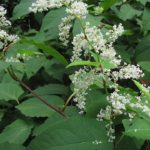
By Jeffrey North Invasive plant species are disrupting ecosystems from Belmont to Beijing, permanently altering the ecology of our forests, fields, and gardens and causing biodiversity loss and species extinction. This article is the third in a series on invasive plant species found in Belmont, the implications of their presence, spread, and ecological damage potential, and hopes for their removal and remediation. Japanese knotweed (Polygonum cuspidatum), also known as Asian knotweed, is native to Japan, China, and Korea. It is frequently found on the sides of volcanoes, where it breaks down igneous rock into new soil. You might think it [READ MORE]
Fernald Site Contains Rare Specimen Trees
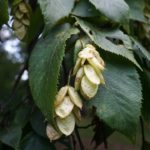
By Eric Olson It is vanishingly rare that a town within ten miles of Boston can, with a single purchase, add nearly 200 acres to its portfolio of open space. That is exactly what Waltham did in the fall of 2014 when its mayor and city council agreed to buy the former Fernald Development Center from the state. I bet most Belmont residents are at least passingly familiar with this property, tucked up in Waltham’s northeast corner between Trapelo and Waverley Oaks roads, less than a quarter-mile from the Belmont line. As a resident of Newton, I had never heard [READ MORE]
Restoration Projects Approved for Lone Tree Hill
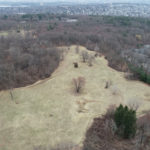
By Jeffrey North The Land Management Committee for Lone Tree Hill approved plans and funding for three 2021 forest restoration and meadow management projects for Lone Tree Hill at a March 3 meeting. The Judy Record Conservation Fund is providing matching funds for the projects, for a total of $22,000 for these initiatives. Area A1 Restoration Continues In early spring, licensed field technicians trained in identifying invasive plant species will cut, mow, and apply plant-specific herbicide in the Area A1 woodland. They will combat Asian bittersweet, buckthorn, garlic mustard, black swallow-wort (Cynanchum louiseae), and lesser celandine, and at least one [READ MORE]
The Roadmap Climate and Clean Energy Law

By Representative Dave M. Rogers While policy makers are confronted by a wide variety of pressing policy issues, few if any compare to the complexity and scale presented by our changing climate. Most of us are long since familiar with the worrisome data, but two recent comprehensive reports thoroughly define the challenge. The most recent National Climate Assessment, a quadrennial publication of the US Global Change Research Program, and the October 2018 report of the UN’s Intergovernmental Panel on Climate Change (IPCC) presents a wide array of troubling findings. The IPCC report concluded that limiting global temperature rise to [READ MORE]
Belmont’s Invasive Plants: Garlic Mustard
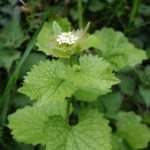
By Jeffrey North Invasive plant species are disrupting ecosystems globally and here in Belmont. Biological invasions are a leading cause of biodiversity loss and even species extinction, and invasive plants are permanently altering the ecology of our forests, fields, and gardens. This article is the first in a series on invasive plant species found in Belmont and the implications of their presence, spread, and ecological damage potential, as well as hopes for their removal and remediation. Garlic mustard (Alliara petiolata) is changing the character of the woodlands in the Northeast. It can outcompete native herbaceous species, depriving the natives of [READ MORE]
How to Help Belmont Survive Climate Change
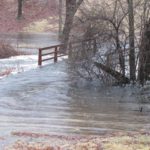
by Anne-Marie Lambert Flooding caused the collapse of the Trapelo Road culvert over Beaver Brook in 2010, and inundated the train tracks at the Waverley MBTA commuter rail station. Belmont is expected to see its share of future big intense storms, extreme heat, and other disasters from climate change. If it’s any comfort, our town now has a preparedness plan, thanks to a state-funded program. The Town of Belmont Hazard Mitigation-Municipal Vulnerability Preparedness Plan identifies local vulnerabilities to flooding, pollution, and traffic jams, and proposes mitigating actions, short-term and long-term, to help vulnerable populations safely shelter from extreme heat, rain, [READ MORE]
2021 Select Board Candidate Answers BCF Questions

Each year, the Belmont Citizens Forum asks Select Board candidates questions about issues facing our town. This year, Mark Paolillo, who is running unopposed, provided answers. He was limited to 1,200 words. Describe your vision for preserving and enhancing Belmont’s quality of living, learning, working, and connecting. Preserving and enhancing Belmont’s quality of life must begin with making town finances stable and sustainable. This will require a more in-depth approach to long-term structural reform. Belmont should consider the use of performance management budgeting which measures resource input against the resulting output of services for each department. That will help us [READ MORE]
Rock Meadow Design Wins International Award
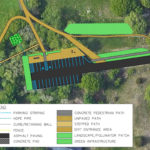
By Jeffrey North The Town of Belmont and the Belmont Conservation Commission congratulates Northeastern University Civil and Environmental Engineering graduates Samantha Kinnaly, Kate Engler, Annie Lamonte, and Emma Totsubo on the recent awards for their design of the main entrance and green infrastructure stormwater management at Belmont’s Rock Meadow conservation area. The project was developed during the spring 2020 capstone course under the supervision of Professor Annalis Onnis-Hayden of the Civil and Environmental Engineering department in partnership with the Belmont Conservation Commission. (See “New Rock Meadow Parking Plan Proposed,” Belmont Citizens Forum Newsletter, May/June 2020.) Their project won first place [READ MORE]
Committee Battles Invasives at Lone Tree Hill
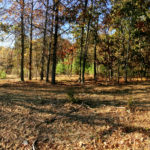
By Jeffrey North On November 3, field technicians engaged by the Land Management Committee for Lone Tree Hill (LMC) and the Judy Record Conservation Fund began a multi-year campaign to restore select parcels of the Lone Tree Hill conservation land. This initial project focused on invasive plant removal at Area A1, where horticulturalists from Parterre Ecological Services began restoration of the shrub layer by hand-cutting the bittersweet vines that were smothering the largest trees and employing a forestry mower to cut down the buckthorn and multiflora rose. Lone Tree Hill—like public, private, and protected lands elsewhere—is gradually being overrun by [READ MORE]
Bikeway Building Booms Beyond Belmont
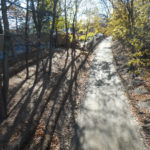
By John Dieckmann. Photos by John Dieckmann In January, biking might not be on too many people’s minds, but with spring only a couple of months away, this seems like a good time to take stock of the regional rail trail network. The Belmont Community Path is a short but essential link in the long distance Mass Central Rail Trail (MCRT), which connects to several other rail trails in its 104 miles from Northpoint Park in Cambridge, near the Science Museum, westward all the way to Northampton. This update covers the roughly 30 miles of the MCRT and connecting trails [READ MORE]
Building Booms on Belmont’s Border
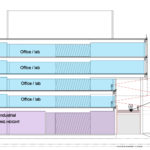
By Meg Muckenhoupt Since aggressively upzoning the Alewife area a decade ago, Cambridge has permitted hundreds of thousands of square feet of new development in the Quadrangle neighborhood adjacent to Belmont, and bordered by Fresh Pond Parkway, Fitchburg line railroad tracks—and Concord Avenue. Now, even more development could solve some long-standing transportation issues, or it could make getting out of Belmont or traveling around the entire Fresh Pond area even more difficult. Why build in the Quadrangle now? Unlike the rest of Cambridge, the Quadrangle has a history of sparse development. Originally one of the lowest-lying areas of the Mystic [READ MORE]
Jerry’s Pond May Have A Chance to Shine
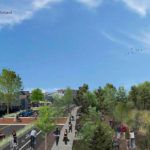
By Greg Harris Since developers have targeted the Alewife area for rapid development, with housing interests erecting massive apartment complexes and life sciences companies rushing to turn the area into a second Kendall Square, long-time residents have feared the trampling of their history, quality of life, community health, and the remaining natural environment. But these changes present opportunities as well as risks. If a coalition of long-time residents and neighborhood activists get their way, life science developer IQHQ’s $125 million dollar acquisition of land next to the Alewife T Station may result in the resurrection of Jerry’s Pond. This neighborhood [READ MORE]
Pomponi Takes Over Habitat Sanctuary

The beauty of Massachusetts Audubon sanctuaries is how deeply rooted they are in their individual communities. Habitat is no exception. Belmont citizens have helped shape Habitat’s programming and gardens and seek solace in its wooded paths and intimate landscape. Renata Pomponi, who is now managing Habitat, understands how special Habitat is, for the natural habitat it protects and the community that considers it their own. It is a true sanctuary within Boston’s metropolitan area. I spoke with Pomponi briefly last month, and she explained how her role came to be. * * * With COVID-19 and the cancelation of programs [READ MORE]
Wrubel Connected People with Nature
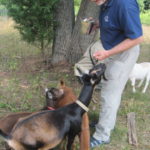
By Anne Paulsen, with contributions from Martha Moore, Heli Tomford, and Sharon Vanderslice Roger Wrubel, entomologist, teacher, conservationist, and community activist, became the director of the Habitat Wildlife Education Center and Sanctuary in 2000 and retired this June. Trained in the study of insects, he spent time at Tufts and UMass Boston teaching and writing and was conscious of the need to build strong bonds between the natural world and people. In the ensuing years, Roger forged that relationship with foresight and determination. Roger moved to Belmont in 1989 and began his community activism as a member of the Solid [READ MORE]
Persistence Built Western Greenway
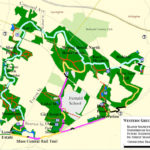
By Roger Wrubel It began for me in 1995. I was working with a new grassroots organization, the McLean Open Space Alliance (MOSA), that formed to try to protect more than 200 acres of undeveloped land owned by McLean Hospital. The hospital campus occupied about 50 acres, and McLean owned about 180 additional acres of forests and meadow beyond that. During a period when hospital finances were challenging, Partners HealthCare, of which McLean was a part, wanted to sell its “surplus” property to developers. This created great controversy in Belmont. About a third of the town favored development, including the [READ MORE]
Commission Plans Lone Tree Hill Restoration
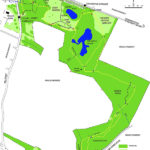
By Jeffrey North Belmont’s 119-acre Lone Tree Hill conservation area, like many recreational lands in the region, is plagued by the insidious creep of invasive plant species. The ecological value of this forest and meadow conservation land is depreciating due to a host of invasive plants that act like predators, harming native plants from oak trees to ferns, forbs, and shrubs. Asiatic bittersweet, for example, has enveloped oak, hickory, and pine trees, covering, killing, and felling a number of these tall trees that define the edge of the meadow and the land’s viewshed. Glossy buckthorn and honeysuckle are killing gray [READ MORE]
New Rock Meadow Parking Plan Proposed

By Jeffrey North and Mary Trudeau The Belmont Conservation Commission recently engaged a team of Northeastern University students to explore parking lot and stormwater drainage improvements for Rock Meadow. As visitors to Rock Meadow can attest, the parking lot is inefficient, rutted, partially paved, and often filled with pockets of standing water. Improvements have been called for since at least 1968, when the report, A Program for Renewing Rock Meadow, stated the obvious: “The entrance is not attractive and does not do justice to the beautiful area beyond.” The arrival experience is incongruent with Rock Meadow’s value as a treasured [READ MORE]
Lone Tree Hill Volunteer Day Postponed
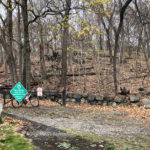
Belmont Citizens Forum’s Eighth Annual Lone Tree Hill Volunteer Day in conjunction with the Judy Record Conservation Fund scheduled for April 24, 2020, at the Lone Tree Hill parcel has been postponed to the fall due to the current Coronavirus shelter in place order. A big shout out to the good Samaritans who picked up the trash at the bottom of Coal Road, along Pleasant Street and at the Mill Street parking lot. Later this year we plan to complete the planting of trees along the Pine Allee. THANK YOU TO OUR CORPORATE SPONSORS Gold Level Sponsors Anne Mahon Realty [READ MORE]
Belmont Tackles Climate Vulnerability Planning
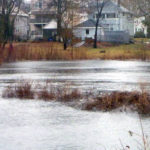
By Catherine Bowen Take Belmont’s municipal vulnerability survey now. How is Belmont preparing for the impacts of climate change? As we are in the midst of a public health crisis, we are seeing the vulnerabilities and strengths of our community similarly to how we may experience them in a climate-change related crisis. It is timely that Belmont is now in the first phase of the Municipal Vulnerability Preparedness Program (MVP), a tool Massachusetts created in 2017 to enable local governments to prepare for the weather-related impacts of climate change and address vulnerabilities, including emergency communications. Modeled on the state’s Green [READ MORE]

